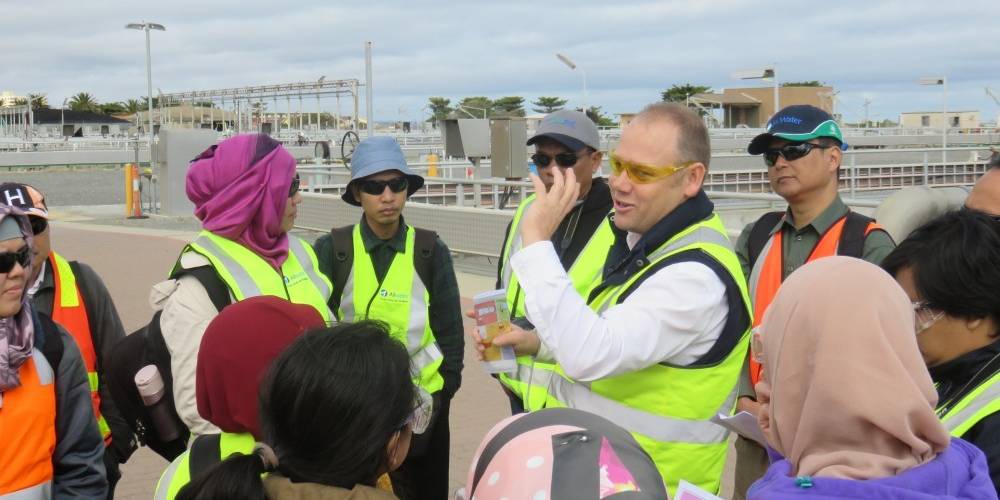
Success factors for short course development
Research 10 Jan 2022 6 minute readA new case study shows short professional development programs that share a set of characteristics can have long-term impact on individual and organisational capacity for sustainable development.
For more than 60 years, the Australian Government has been awarding the next generation of global leaders an opportunity to undertake study, research and professional development in Australia. Known today as the Australia Awards, these prestigious scholarships and fellowships have been offered to more than 80 000 high achievers from the Australasian region and beyond.
Case studies conducted by the Australia Awards Global Tracer Facility over the past five years have focused on the experiences of scholarship alumni that completed full-time undergraduate or postgraduate study.
The Facility’s latest case study investigates the impact of short courses and fellowships (under three months’ duration) on alumni knowledge, skills and networks. Relatively little is known about these ‘short course alumni’ – particularly in relation to the extent they are able to continue to contribute to the long-term outcomes of the Australia Awards.
The research involved analysis of the 2020 Global Tracer Survey, in which 298 of the 6200 responses were from short course alumni. Survey responses suggest that, despite the short duration of their course or fellowship, these alumni are able to contribute substantially to their country in the years following their award:
- 99.3 per cent were able to use the skills and knowledge from their fellowship to make improvements within their organisations
- 91.1 per cent were able to contribute at a broader level through improving local communities
- 92.3 per cent contributed to development at a national level
- 82.6 per cent contributed to development at a regional or global level.
In terms of capacity building, almost all alumni (99%) reported they were passing on the skills and knowledge learned on award on to colleagues. On a personal level, 97.9 per cent of fellowship alumni reported their work and career opportunities had improved after completing their award.
Sustainable development contributions
To better understand the long-term outcomes of short course alumni, the Facility interviewed 10 alumni and additional stakeholders involved in three specific fellowships in 2015. These alumni have made significant contributions towards the United Nations Sustainable Development Goals (SDG), in particular quality education (Goal 4), clean water and sanitation (Goal 6), and climate action (Goal 13).
Alumni of a digital literacy fellowship led by Queensland University of Technology (QUT) have improved the integration of information and communication technologies into teaching and learning in the Philippines through curriculum reform, teacher education and the professional development of academic staff.
In the Solomon Islands, alumni of a water, sanitation and hygiene fellowship also led by QUT have improved health outcomes and accessibility of clean water and sanitation through inclusive planning and project management practices that address the needs of people with disabilities, and women and girls in rural communities.
Effective water supply and sanitation was also the focus of a fellowship from Indonesia led by the International Centre for Excellence in Water Resources Management. These alumni have improved human resource capacity training and alignment of the curriculum to better meet the water management needs of Indonesia in response to climate change.
Conditions for success
The Facility explored the data collected from this and other case studies conducted over the last five years to identify the conditions for success in fellowships and short courses. This analysis included insights and recommendations from Australian host institution representatives, alumni, managing contractors, and Posts involved in the design, delivery and evaluation of fellowships.
To be successful, short professional development interventions should incorporate the following conditions:
- collaborative design between the host institution and partner organisation/s to address identified capacity gaps and training needs
- the careful selection of participants to facilitate inter-organisational linkages, reduce silos, promote the exchange of diverse perspectives, and create big picture thinking and planning across organisations or sectors
- theory-based classroom learning, supported by guest speakers, site visits, benchmarking and networking opportunities
- group-based re-integration projects or Re-Entry Action Plans (REAPs) to strengthen people-to-people linkages and address organisational capacity gaps post award
- in-country follow up visits to evaluate REAPs and strengthening ongoing institutional linkages
- a dedicated social media group to promote interaction among alumni and build a ‘community of practice’ among alumni, Australian academics, participating partner organisations and technical experts involved in the award.
The findings suggest that through careful planning, collaboration and co-design, short courses can be used as a successful mechanism to build human resource capacity in priority areas at the country and regional level. ■
Find out more:
The Australian Awards Global Tracer Facility is managed by the Australian Council for Educational Research (ACER) on behalf of the Australian Department of Foreign Affairs and Trade (DFAT) .
To read the full report by Jo Doyle and Leyna Clarke visit the Australia Awards Global Tracer Facility webpage.